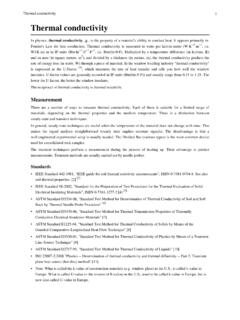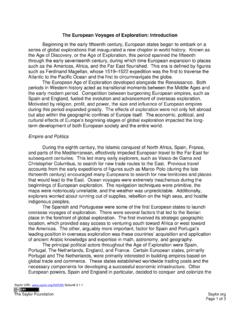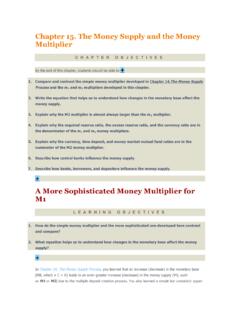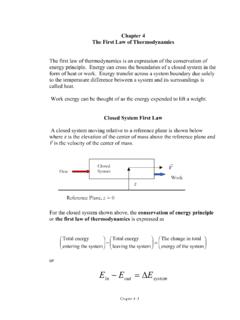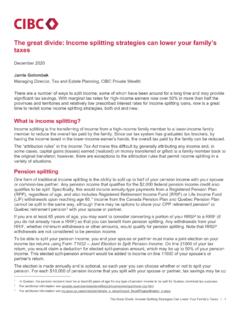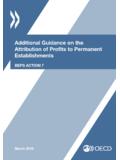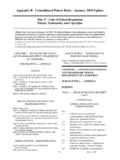Transcription of This text was adapted by The Saylor Foundation under a ...
1 Saylor URL: 1 This text was adapted by The Saylor Foundation under a Creative Commons attribution -NonCommercial-ShareAlike License without attribution as requested by the work s original creator or licensee. Saylor URL: 2 Preface Ethics is about determining value; it s deciding what s worth doing and what doesn t matter so much. Business ethics is the way we decide what kind of career to pursue, what choices we make on the job, which companies we want to work with, and what kind of economic world we want to live in and then leave behind for those coming after.
2 There are no perfect answers to these questions, but there s a difference between thinking them through and winging it. The Business Ethics Workshop provides a framework for identifying, analyzing, and resolving ethical dilemmas encountered through working life. This text s principles: It s your call. Some of the book s case studies ask for defenses of ethical positions that few agree with (for example, the claim that a drug dealer s job is better than a police officer s). Exercises like this align with the textbook s aim: provoking reasoning freed from customary divisions between right and wrong.
3 In the end, no one completely resists their own habits of thinking or society s broad pressures, but testing the limits sharpens the tools of ethical analysis. These tools can be relied on later on when you face decisions that you alone have to make. The aim of this book is to help make those decisions with coherent, defensible reasoning. Keep it mostly real. Ethics is an everyday activity. It s not mysterious, head-in-the-clouds ruminating but determining the worth of things around us: Working at an advertising agency is exciting actors, lights, cameras, and TV commercials but do I really want to hock sugary breakfast cereals to children?
4 Should I risk my reputation by hiring my college roommate, the one who s habits of showing up late and erratically to class have carried over to working life? These are the immediate questions of business ethics, and while any textbook on the subject must address broad, impersonal questions including the responsibilities of massive corporations in modern societies, this book s focus stays as often as possible on ordinary people in normal but difficult circumstances. Be current. The rules of ethical thinking don t change much, but the world is a constant revolution. The textbook and its cases follow along as closely as possible, citing from blog posts and recent news stories.
5 As a note here, to facilitate reading some of these citations have been slightly and silently modified. Saylor URL: 3 Let s talk about our problem. Case studies are the most important components of this text because it was written for a discussion-intensive class. Ethics isn t something we know; it s something we do, and trying out our reasoning is the best way to confirm that it s actually working. Saylor URL: 4 Chapter 1 What Is Business Ethics? Chapter Overview Chapter 1 "What Is Business Ethics?" defines business ethics and sketches how debates within the field happen.
6 The history of the discipline is also considered, along with the overlap between business and personal ethics. What Is Business Ethics? L E A R N I N G O B J E C T I V E S 1. Define the components of business ethics. 2. Outline how business ethics works. Captive Customers Ann Marie Wagoner studies at the University of Alabama (UA). She pays $1,200 a year for books, which is exasperating, but what really ticks her off is the text for her composition class. Called A Writer s Reference (Custom Publication for the University of Alabama), it s the same Writer s Reference sold everywhere else, with slight modifications: there are thirty-two extra pages describing the school s particular writing program, the Alabama A is emblazoned on the front cover, there s an extra $6 on the price tag (compared with the price of the standard version when purchased new), and there s an added sentence on the back: This book may not be bought or sold used.
7 The modifications are a collective budget wrecker. Because she s forced to buy a new copy of the customized Alabama text, she ends up paying about twice what she d pay for a used copy of the standard, not-customized book that s available at and similar used-book dealers. For the extra money, Wagoner doesn t get much a few additional text pages and a school spirit cover. Worse, those extra pages are posted free on the English department s website, so the cover s the only unambiguous benefit. Even there, though, it d be cheaper to just buy a UA bumper sticker and paste it Saylor URL: 5 across the front.
8 It s hard to see, finally, any good reason for the University of Alabama English Department to snare its own students with a textbook costing so much. Things clear up when you look closely at the six-dollar difference between the standard new book cost and the customized UA version. Only half that money stays with the publisher to cover specialized printing costs. The other part kicks back to the university s writing program, the one requiring the book in the first place. It turns out there s a quiet moneymaking scheme at work here: the English department gets some straight revenue, and most students, busy with their lives, don t notice the royalty details.
9 They get their books, roll their eyes at the cash register, and get on with things. Wagoner noticed, though. According to an extensive article in the Wall Street Journal, she calls the cost of new custom books ridiculous. She s also more than a little suspicious about why students aren t more openly informed about the royalty arrangement: They re hiding it so there isn t a huge uproar. [1] While it may be true that the Tuscaloosa University is hiding what s going on, they re definitely not doing a very good job since the story ended up splattered across the Wall Street Journal. One reason the story reached one of the United States largest circulation dailies is that a lot of universities are starting to get in on the cash.
10 Printing textbooks within the kickback model is, according to the article, the fastest growing slice of the $ billion college textbook market. The money s there, but not everyone is eager to grab it. James Koch, an economist and former president of Old Dominion University and the University of Montana, advises schools to think carefully before tapping into customized-textbook dollars because, he says, the whole idea treads right on the edge of what I would call unethical behavior. I m not sure it passes the smell test. [2] What Is Business Ethics? What does it mean to say a business practice doesn t pass the smell test ?


